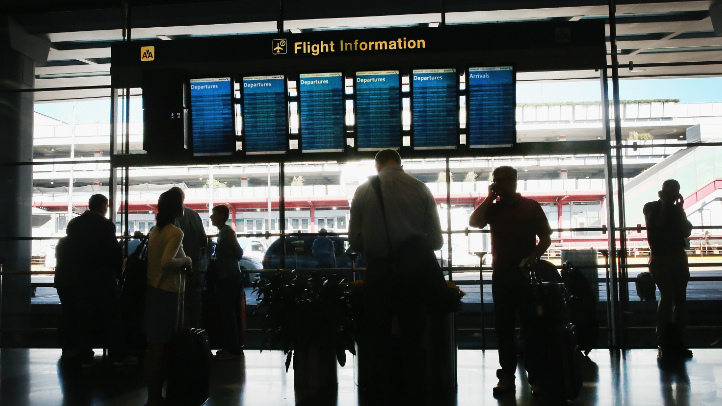
A global pandemic wrought havoc on the international economy, but it couldn’t stunt the growth of Illinois’ young legal sports betting industry.
Two years ago, as word of a troubling new virus was spreading across the globe, Blackhawks announcer Eddie Olczyk put a hundred bucks on the White Sox to win the pennant — and put the state on the map as the 15th in the nation to lay odds legally on sports.
Five COVID-19 surges and nearly $9 billion in wagers later, Illinois is considered one of the nation’s top four sports betting markets, with gamblers plunking down an average of $156 every second.
And it just got easier for more residents to get in on the action, as a tweak to state gambling law took effect Saturday allowing people to sign up for sports betting accounts on their phones instead of driving to a casino or racetrack.
Feeling out of the loop? We'll catch you up on the Chicago news you need to know. Sign up for the weekly Chicago Catch-Up newsletter here.
When Gov. J.B. Pritzker signed the law introducing Illinois sports betting in 2019, potential gamblers were required to sign up at brick-and-mortar casino sportsbooks, which could then offer the types of mobile betting applications where more than 95% of bets are placed.
The law was written to give the casinos a head start on web-based betting companies such as DraftKings and Fanduel that previously operated within a legal gray area in Illinois for years.
That so-called “penalty box” period for the online giants was supposed to last for 18 months until they could snag a state gambling license — but both companies skated through a loophole out of the box within six months of Illinois’ sports betting launch on March 9, 2020.
Local
By striking branding deals with existing brick-and-mortar sportsbooks that already had licenses, they were able to start taking bets after plastering their names on the downstate “DraftKings at Casino Queen” in East St. Louis and “FanDuel Sportsbook and Horse Racing” in Collinsville.
COVID-19 made their transition even easier. Facing a massive pandemic budget shortfall and desperate for revenue, Pritzker suspended the in-person registration requirement, allowing people to sign up and bet from anywhere they could find a cell signal.
The governor allowed that to go on for about 10 months, but the in-person requirement went back into effect last April.
The original law was murky on when the requirement would expire, so lawmakers passed a bill last fall marking March 5 as the expiration date — and keeping mobile registration in place for good.
The back-and-forth created some confusion for gamblers, but it hardly stymied growth. The statewide handle, or total amount of money wagered, eclipsed $8.9 billion from launch through December 2021, the most recent month for which data is available from the Illinois Gaming Board.
“Illinois has had one of the weirdest sports betting rollouts in the country, but it’s also one of the most successful markets,” said Joe Boozell, an industry analyst from PlayIllinois.com. “Illinois is so populous and has such rabid fan bases, it’s a recipe for a robust market.”
So far, the sportsbooks have come out on top with almost $651 million in revenue, generating $98 million in state tax revenue plus another $7.3 million for Cook County.
State Rep. Mike Zalewski, the Riverside Democrat who runs point on sports betting legislation, said the “law continues to generate millions of dollars for new universities, schools and libraries for our citizens and with a fully integrated network, the numbers will only improve.”
The state’s $8.9 billion all-time handle would shake out to about $903 wagered for every adult resident — nearly $13.5 million bet every day, or $9,341 every minute.
Of course, the bets don’t spread out quite so evenly on the calendar. Almost $61 million was bet on the Super Bowl alone in Illinois.
With March Madness kicking off March 13, Boozell said the state’s switch to remote registration could have “a substantial effect” — although bets on Illinois college teams still are allowed only in person.
“It makes things a lot easier for more casual fans,” he said.
It could also create more temptation for people dealing with gambling addiction.
Anita Pindiur, executive director of the Way Back Inn addiction rehabilitation center in Maywood, said she’s seen about a 30% increase in people seeking help for gambling disorder since the pandemic hit — with most of those in treatment citing sports betting as a problem.
Pindiur said the in-person registration requirement was “helpful, because it’s an extra step people have to take to get there.
“But does it stop people who have a problem? No,” she said.
Pindiur urges even casual gamblers to set financial limits and time limits on the apps.
The Way Back Inn offers free evaluations and can be reached toll-free at (866) 993-6503. For more information on problem gambling support, call 1-800-GAMBLER or text “ILGAMB” to 53342.



